Anthony Chircop is the mayor of one of Malta’s largest cities, one of the most vibrant and most densely populated on the island. What he and his office have to deal with on a day to day basis are not comparable to any other local councils, except a few. From people complaining on construction works, to contractors waiting for the necessary permits to set up their workplace. Being Sliema’s mayor is one tough task which Mr Chircop intends to complete with diligence.
“I did not intend to be mayor for so long,” he explains. “This was supposed to be my last year, but now that the local council elections have been postponed to 2019, my realm will be longer than expected.”
‘We are the first to get fingers pointed at’
The first issue which the Sliema mayor wanted to clarify was with regards to the former Imperial Hotel, which is going to be transformed into a home for the elderly.
“Let me be very clear, we are not against the project. We did present our complaints before the Planning Authority and when what needed emending was changed, we voted in favour of the project.” What concerned Mr Chircop was that the public was, as usual, blaming the local council for the inconveniences caused.
“When the photo of the dust coming out from the construction site emerged, everyone started blaming the council. But the truth is that the council really has little control over certain things. We do take care of some logistics, like which streets will be opened or closed. But some issues, like the dust protection in this case, were supposed to be provided by the contractor.”
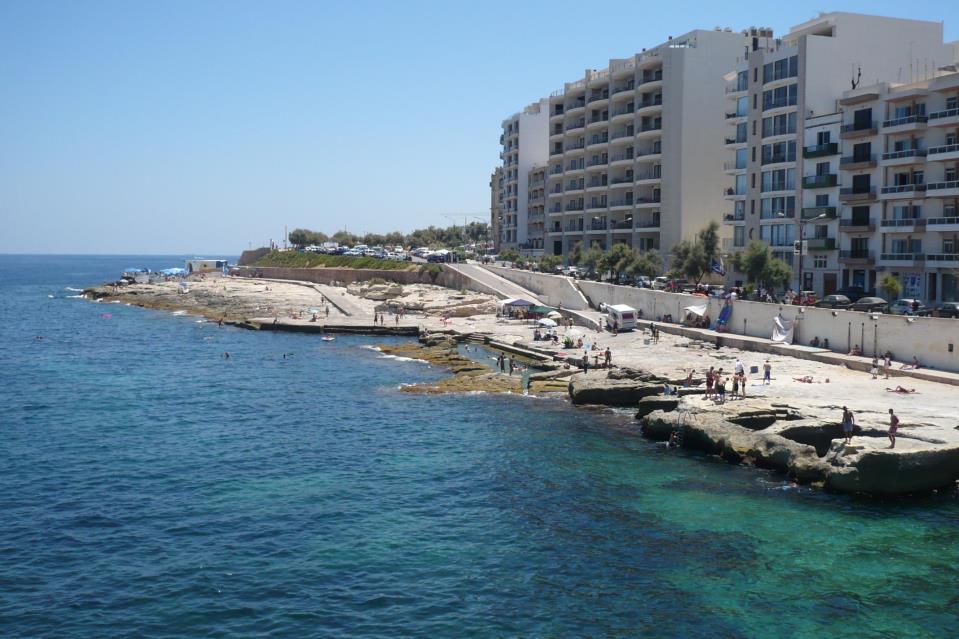
Anthony Chircop then points to one of the council workers and explainsthe rigorous process through which they have to go through to check for necessary permits.
“They have this Sliema map printed out and these workers have to sit at their desk, wait for contractors to come knocking at the door asking for road closure permits. When they decide to close one road, they need to check if the secondary road is open for traffic. It’s a very delicate job, you see,” he explains.
“People think that the council has control over everything that happens in Sliema. What we can help out with, is facilitating things for the public. That is why when we know about a relatively big development, we meet with the contractors and help out on how they can work to make things less chaotic.”
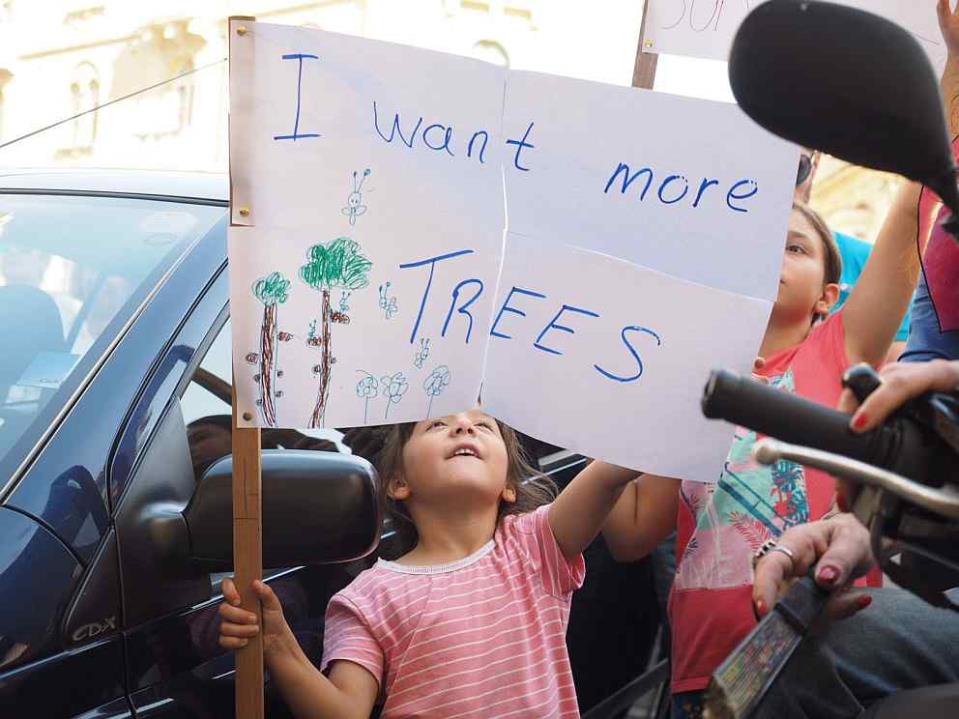
‘I always remember Sliema bustling with development’
Mr Chircop is now 68 years old and has been living in Sliema ever since he was very young. He said that Sliema was always a vibrant city and in a way, constantly under construction. “Sliema was always developing. The only thing is that the building proportions were much smaller than today’s.”
The mayor said that many argue that Sliema is a relatively modern locality and can afford to undergo such development. But, as he explained, there were numerous old houses which had a lot of artistic value but were completely lost because of modern development.
“Of course it is understandable that people who inherit some old house would want to make money out of it, and converting it into a block of flats will probably be the most profitable. Yes, it is a pity that there are a lot of houses with beautiful features being demolished for the sake of development.”
Besides the issue of losing vintage properties in Sliema, old houses being replaced by blocks of apartments cause another major problem.
“A small door which used to provide access for one household is now the door of a block of 12 apartments. So that means that the number of garbage bags sitting behind one door will increase drastically. No wonder people complain of how dirty Sliema is and I think the Planning Authority should also consider this strain when considering developments in Sliema.”
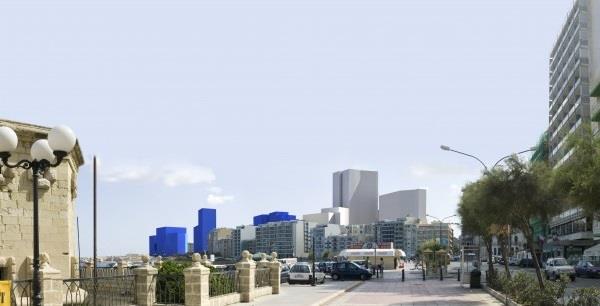
‘Our situation is not as bad as St Julian’s’
While agreeing with the fact that the Sliema local council, differently from the other, smaller local councils in Malta, has to deal with a lot of inconveniences caused by tourists, among others, Mr Chircop still believes that their situation cannot be compared with the one in St Julian’s. Council members in St Julian’s have complained that their locality must face greater hurdles than other localities.
“Our situation is not as bad as what the St Julian’s local council has to face. I mean, we do get a lot of tourists. But our market is different from the one in St Julian’s. Here in Sliema we get tourists of a certain age, but in St Julian’s, tourists are younger. That makes a big difference.
Obviously development is one issue which affects the people most. As a council, what we can provide is a one stop shop, but this does not mean that we are responsible for every little thing in the locality.”
Mr Chircop said that he would agree to have a system by which different localities have different funding according to their various needs. “We just need to be careful that we keep the true intentions in sight.”
The local council funding does have a system of criteria, he explained. “It needs some updating but at least a formula exists already and local councils were given an increase, Sliema included. What we don’t know is whether this increase in funding will be a one-off or yearly.” Mr Chircop was referring to the fact that the government decided to increase local council funds as it had managed to cut the costs normally incurred by an election.
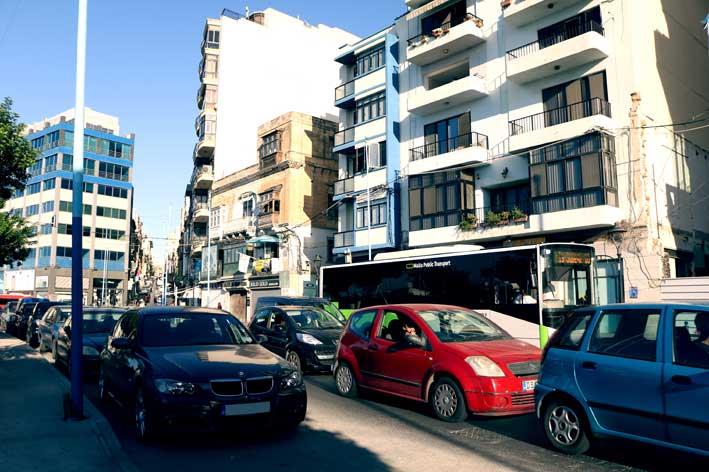
Relationship with Parliamentary Secretary Buontempo is ‘excellent’
Anthony Chircop says he has an excellent relationship with the Parliamentary Secretary for Local Councils Stefan Buontempo. This claim comes after the resignation of Marc Sant, who stepped down from his post of President of the Local Councils Association saying that the relationship between himself and Stefan Buontempo was ‘inexistent’.
“The man is approachable. Of course, we had our disagreements but the relationship is good. I believe that the man has good intentions.”
Sliema is often at the centre of political attention especially with its situation of over-development. It is no wonder that the mayor can sometimes feel that the local issues get overshadowed with partisan politics.
“I do feel it yes. But we try our best to keep partisan politics out of local issues. The first thing I told my colleagues when I became mayor was to leave their partisan interests outside.”
He insists that despite the presence of different political ideologies in the council, the team is united. “I brag about this because it is something not so common. Whenever I wanted to meet someone who has a different political belief, I felt very comfortable.”
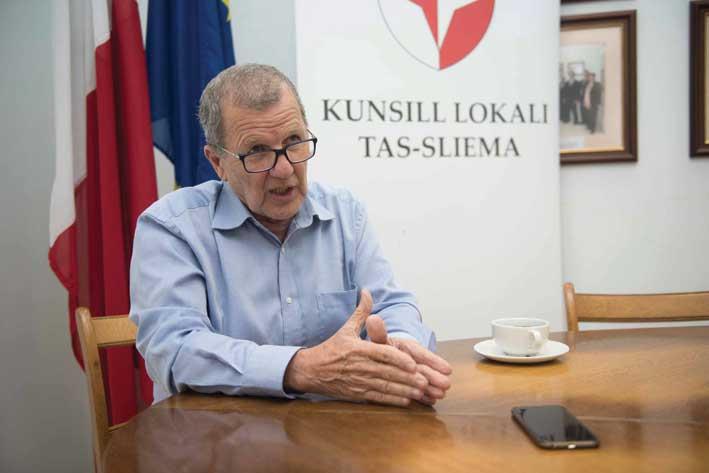
‘Every morning I wake up knowing I have to face a struggle’
“My ultimate message which I want to get out it that we are here to help. But please understand that we try our best and do not have control on everything and we have our limitations. Our obligations are towards making Sliema better.”
Mr Chircop, in his closing remarks, mentioned one particular problem over which he has little control.
“We speak of bad road conditions. But it has to be put into context so that the public can understand. From the former Imperial Hotel alone, more than 50 truckloads pass through our roads every day. Prince of Wales Road (ManwelDimech Street)has been damaged for so long, and now it can only get worse.”
The cost to embellish this one particular road can reach up to €600,000. “How can we invest so much money when the total budget for road repairs is only around €110,000?”
Sliema has another problem with regards to roads. None of them fall under the government’s responsibility and so the damages need to be repaired by the council.